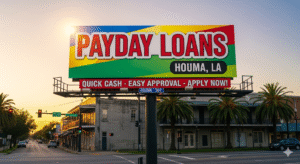
Crypto Fundamentals: How to Buy Bitcoin in 2025
Cryptocurrency adoption has reached all-time highs in 2025. With Bitcoin ownership surpassing 219 million wallets globally and nearly 1 in 5 Americans holding digital assets, there’s never been more interest in entering the crypto space. Yet with this increased attention comes a critical question: Can you still buy Bitcoin anonymously—and is it safe to do so?
We’ll explore:
- What is Bitcoin anonymity?
- Legal considerations in the U.S. (2025)
- Anonymous vs pseudonymous: key distinctions
- How to buy Bitcoin anonymously: step-by-step methods
- Tools for maintaining transaction privacy
- Risks and red flags to avoid
- Wallet types and their privacy features
- Top platforms for private Bitcoin purchases
- Best practices for crypto security
- Final thoughts for cautious investors
1. What Is Bitcoin Anonymity?
While Bitcoin is often described as anonymous, it’s more accurate to call it pseudonymous. Every Bitcoin transaction is recorded on the blockchain—a public ledger that anyone can view. Instead of names, transactions are tied to alphanumeric wallet addresses.
True anonymity means:
- No identity or personally identifiable information (PII) is shared
- No link between your wallet and your real-world identity
- No centralized authority or KYC requirement
Bitcoin isn’t anonymous by default—but with the right tools and strategies, you can make your transactions harder to trace.
2. Legal Considerations in the USA (2025)
Is buying Bitcoin anonymously legal?
Yes, owning or buying Bitcoin anonymously is legal in the U.S., provided you’re not using it for illicit activity. However, U.S.-based exchanges and financial institutions are subject to AML (Anti-Money Laundering) and KYC (Know Your Customer) laws.
Key regulations:
- The Bank Secrecy Act (BSA) requires exchanges to collect user info
- The FinCEN Travel Rule mandates identity transfer for large crypto transactions
- U.S. citizens must report crypto gains on IRS Form 8949 and Schedule D
Violating tax or money laundering laws can result in audits, fines, or worse. Privacy ≠ criminality—but don’t confuse the two.
3. Anonymous vs Pseudonymous
| Feature | Anonymous Bitcoin Use | Pseudonymous Bitcoin Use |
|---|---|---|
| Wallet Type | Paper wallet, hardware | Exchange wallet, mobile wallet |
| KYC Required? | No | Yes (usually) |
| Public Ledger? | Yes | Yes |
| Traceable to Person? | No (if precautions taken) | Yes (linked to exchange/KYC) |
4. How to Buy Bitcoin Anonymously (2025 Methods)
1. Peer-to-Peer (P2P) Exchanges
- Platforms: Bisq, HodlHodl, Peach Bitcoin
- Benefits: No KYC, decentralized, supports cash trades
- Risks: Counterparty trust, slower matching
2. Bitcoin ATMs (Select Machines)
- Use cash to purchase BTC directly
- Some machines allow limits under $1,000 without ID
- Use locator apps like CoinATMRadar to find no-KYC options
3. In-Person Cash Trades
- Meetup with sellers via forums (e.g., LocalMonero, local Bitcoin meetups)
- High-risk unless meeting in public spaces with precautions
4. Mining (Advanced Users)
- Mine BTC independently (costly & competitive)
- Fully anonymous, but expensive to set up
5. Gift Cards or Prepaid Debit Cards
- Buy cards in-store and use to buy BTC via P2P platforms
- Avoids linking personal bank or ID
5. Privacy Tools & Techniques

Coin Mixing Services (aka CoinJoins)
- Platforms: Samourai Wallet’s Whirlpool, Wasabi Wallet
- Obscures the transaction trail by blending coins from multiple users
VPN or Tor
- Always access wallets or exchanges using VPNs or the Tor browser to mask IP addresses
Non-Custodial Wallets
- Keep your private keys
- No identity registration
Bitcoin Lightning Network
- Micropayment layer on top of Bitcoin
- Offers faster, off-chain, semi-private transactions
6. Red Flags & Risks
- Scams: Fraudulent sellers in P2P markets
- Price gouging: Premiums on anonymous purchases (5%–20%+)
- Malware & phishing: Especially when using open-source wallets
- Legal grey zones: Cash trades over $10,000 may trigger IRS scrutiny
- Rug pulls on new platforms: Vet everything twice
7. Best Wallets for Privacy
1. Samourai Wallet (Android)
- Supports Whirlpool, stealth modes, and remote commands
2. Wasabi Wallet (Desktop)
- Open-source with integrated CoinJoin
3. Electrum Wallet (Desktop)
- Customizable with privacy-enhancing plugins
4. Trezor + Sparrow (Hardware/Desktop combo)
- Full privacy control with multisig capabilities
5. Paper Wallets or Steel Wallets
- Fully offline, best for long-term anonymous storage
8. Best Platforms for Private Bitcoin Purchases
| Platform | Type | KYC-Free? | Anonymity Level | Use Case |
| Bisq | P2P | ✅ | High | Cash, altcoin trades |
| HodlHodl | P2P | ✅ | High | Escrow + multisig |
| CoinATMRadar | Locator Tool | ✅ | Medium–High | ATM-based purchases |
| Peach Bitcoin | P2P (Mobile) | ✅ | High | Cash, bank transfers |
| AgoraDesk | P2P | ✅ | High | BTC and Monero trades |
9. Crypto Security Best Practices
- Never reuse wallet addresses
- Use multi-signature (multisig) wallets
- Split your holdings across wallets
- Avoid cloud wallets tied to email/phone
- Backup recovery phrases offline (write or engrave)
- Avoid buying BTC with a KYC bank account if anonymity is a goal
- Use burner phones and anonymous email (ProtonMail, Tutanota)
10. Final Thoughts: Should You Buy Bitcoin Anonymously?
Privacy isn’t about hiding—it’s about freedom. Anonymous Bitcoin purchases are still possible in 2025, but they require extra effort, security discipline, and due diligence.
If you value:
- Personal liberty
- Financial sovereignty
- Protection against surveillance capitalism
Then learning how to buy Bitcoin anonymously (legally) is a powerful step.
Just remember:
- Security > convenience
- Privacy > popularity
- Education = your best investment
Be private. Be legal. Be prepared.




